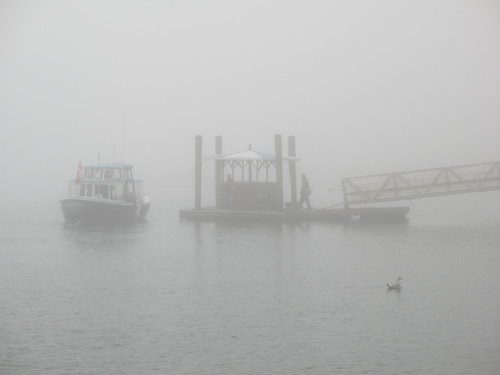I just remembered it’s National Poetry Month. Last year I posted an old poem of mine, but this year I thought I’d showcase the works of real poets. Now, I read very little poetry, but there are few poems that have made a strong impression on me.
The first is The Old Astronomer To His Pupil, written by 19th century poet Sarah Williams.
I just remembered it’s National Poetry Month. Last year I posted an old poem of mine, but this year I thought I’d showcase the works of real poets. Now, I read very little poetry, but there are few poems that have made a strong impression on me.
The first is The Old Astronomer To His Pupil, written by 19th century poet Sarah Williams. The first four stanzas are the most often quoted, and it’s the last line of the fourth stanza that guarantees its immortality. I found this a quietly moving tribute to the scientific profession. There is a deep respect for science, its virtues and rewards, but also, perhaps, the price one pays for practicing it. Mind you, I’m not aware of any scientist whose career is as lonely and thankless as this fictional astronomer’s… but, we’ll chalk it up to poetic license. Enjoy.
The Old Astronomer To His Pupil
Reach me down my Tycho Brahe, — I would know him when we meet,
When I share my later science, sitting humbly at his feet;
He may know the law of all things, yet be ignorant of how
We are working to completion, working on from then till now.
Pray, remember, that I leave you all my theory complete,
Lacking only certain data, for your adding as is meet;
And remember, men will scorn it, ’tis original and true,
And the obloquy of newness may fall bitterly on you.
But, my pupil, as my pupil you have learnt the worth of scorn;
You have laughed with me at pity, we have joyed to be forlorn;
What, for us, are all distractions of men’s fellowship and smiles?
What, for us, the goddess Pleasure, with her meretricious wiles?
You may tell that German college that their honour comes too late.
But they must not waste repentance on the grizzly savant’s fate;
Though my soul may set in darkness, it will rise in perfect light;
I have loved the stars too truly to be fearful of the night.
What, my boy, you are not weeping? You should save your eyes for sight;
You will need them, mine observer, yet for many another night.
I leave none but you, my pupil, unto whom my plans are known.
You “have none but me,†you murmur, and I “leave you quite alone�
Well then, kiss me, — since my mother left her blessing on my brow,
There has been a something wanting in my nature until now;
I can dimly comprehend it, — that I might have been more kind,
Might have cherished you more wisely, as the one I leave behind.
I “have never failed in kindness� No, we lived too high for strife, —
Calmest coldness was the error which has crept into our life;
But your spirit is untainted, I can dedicate you still
To the service of our science: you will further it? you will!
There are certain calculations I should like to make with you,
To be sure that your deductions will be logical and true;
And remember, “Patience, Patience,†is the watchword of a sage,
Not to-day nor yet to-morrow can complete a perfect age.
I have sworn, like Tycho Brahe, that a greater man may reap;
But if none should do my reaping, ’twill disturb me in my sleep.
So be careful and be faithful, though, like me, you leave no name;
See, my boy, that nothing turn you to the mere pursuit of fame.
I must say Good-bye, my pupil, for I cannot longer speak;
Draw the curtain back for Venus, ere my vision grows too weak:
It is strange the pearly planet should look red as fiery Mars, —
God will mercifully guide me on my way amongst the stars.




